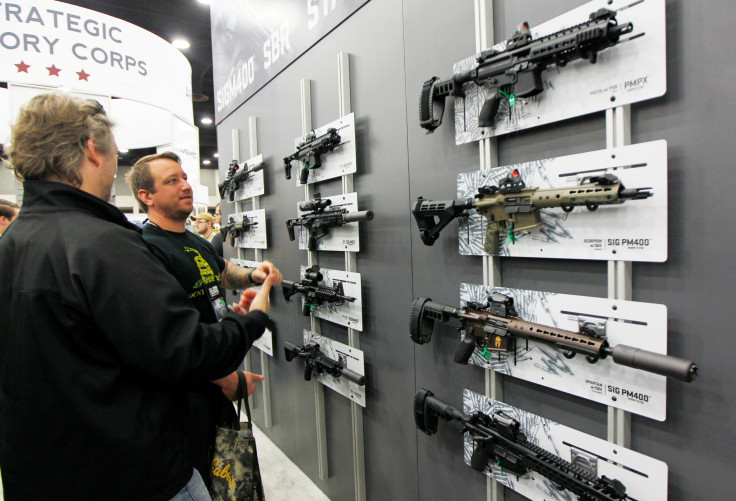Gun Laws: What Happens After The Election?

In a victory for gun control advocates, voters in three states approved ballot measures to curtail access to deadly weapons with increased background check requirements on Tuesday. Voters in Maine, however, shot down the measures.
In California, Proposition 63, which requires ammunition buyers to obtain a permit before making a purchase, won 62.69 percent of the vote. Prop 63 also eliminates loopholes in bans on large-capacity magazines and seeks to keep guns out of the hands of people not permitted to own firearms, such as domestic abusers and the mentally ill. The measure’s passing was hardly a surprise, as a University of Southern California Dornsife/Los Angeles Times poll found 58 percent of voters to be in support of it, compared to 35 percent opposed.
Voters in Washington passed Initiative 1491, which would permit courts in the state to issue an “extreme risk protection order” to keep someone from legally getting their hands on a firearm for a designated period “if the court finds that the individual poses a significant danger of causing personal injury to himself or others with a firearm,” according to the initiative’s ballot summary. Like California’s Prop 63, the Washington measure was expected to pass by a wide margin, with a local KCTS-9/Crosscut Washington poll finding 70 percent of voters planning to check “yes” on Nov. 8.
California and Washington were already among the eight states requiring universal background checks for all gun sales, including those by private, unlicensed dealers, a list that includes Colorado, Connecticut, Delaware, New York, Oregon and Rhode Island.
On Tuesday, Maine narrowly missed the chance to join this group as the state's voters chose not to pass Question 3, a measure requiring unlicensed gun buyers and sellers to meet at a licensed dealer for a background check before completing the transaction.
The law wouldn’t have applied, however, to family members giving or selling firearms to one another, or to temporary use for the sake of self-defense, hunting or lawful shooting competition. Maine voters' rejection of the law came as a surprise, as 60 percent of state residents were expected to vote in favor of the measure as of late September, according to a Portland Press Herald poll.
Nevada’s Question 1, which also requires all arms purchases to go through a dealer, faced little resistance from voters, with 50.4 percent voting in favor on Tuesday. Unlike the other measures, support for Question 1 looked less certain in the run-up to the election, with 54 percent of likely voters in favor of the law, compared to 38 percent against it and 8 percent undecided, according to a late October poll from the Las Vegas Review-Journal.
© Copyright IBTimes 2025. All rights reserved.






















